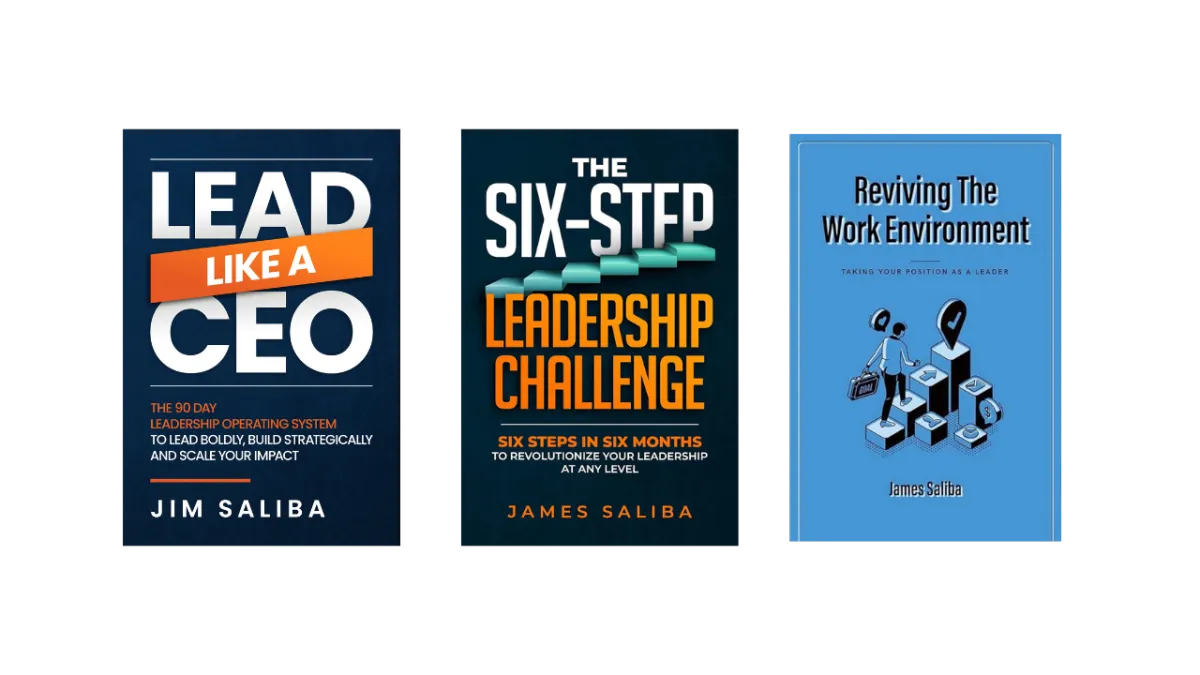Insights for Real-World Leadership
Straight talk and proven strategies for leaders who are done babysitting and ready to lead at the next level.

Stop Coaching for Performance—Start Coaching for Ownership
(Because you're not a babysitter. You're a damn leader.)
Let’s have a little chat about that team of yours.
You know—the one that “checks in” constantly. The one that needs your feedback before making a move. The one that grinds out the work like clockwork but stalls the moment you step away.
Yeah. That team isn’t performing. They’re complying.
And here’s the hard truth: if you're the one holding the map, packing the snacks, and driving the bus—you don’t have a team. You’ve got adult-sized dependents riding your coattails to mediocrity.
That’s not leadership. That’s babysitting.
The Leadership Lie That Keeps You Stuck
Somewhere along the way, someone sold us on the idea that great leaders are great coaches—of performance.
That if we set clear goals, track progress, and give a steady stream of feedback, we’ll somehow mold a team of self-driven high performers.
But here’s the problem: performance coaching doesn’t create ownership. It creates permission-seekers. Approval addicts. People who need your thumbs-up to keep moving.
And in today’s orgs—flat, fast, messy, political—permission-seekers get eaten alive.
Ownership > Output
Let me be clear: performance matters. But output without ownership is a short-term game.
Ownership is what happens when people:
Make decisions without needing a green light.
See problems and fix them without looping you in.
Think bigger than their task list and align to the mission.
It’s not about doing what you asked. It’s about doing what’s needed—without being told.
That’s the game-changer.
Three Coaching Shifts That Actually Build Leaders
1. Ask like a coach. Don’t answer like a manager.
Stop being the human helpdesk. When someone says, “What should I do?” try:
“What do you think the best next step is?”
“What outcome are you aiming for?”
“What would make you proud of this result?”
Ownership grows in the space where people think for themselves.
2. Track decisions, not just deliverables.
Instead of status checks, ask:
“What decision did you make this week?”
“What did you say no to?”
“Where did you take a stand?”
Because when people start owning decisions, they stop being task rabbits and start becoming leaders.
3. Reward risk, not compliance.
When someone steps up—even if it’s messy—celebrate it. Don’t just say, “Good job getting it done.” Say:
“I love that you took the lead on that. What did you learn from the process?”
“How did that decision feel?”
You’re not building robots. You’re building thinkers.
Real Talk from the Trenches
I worked with a VP—we’ll call her Dana—whose team executed flawlessly. But everything had to go through her. Every. Single. Thing.
Her calendar was a grid of 15-minute decisions she shouldn’t have been making. Her boss wanted her thinking big—Dana was stuck chasing approvals and managing handoffs.
So we made one change: She stopped coaching for performance. Started coaching for ownership.
She handed off decisions. Asked better questions. Made space for her team to fail forward.
Within a quarter? Her team was humming. She had room to breathe. And she finally got invited to the offsite where real strategy was being shaped.
Final Word
If your people can’t move without your input, you’re not leading. You’re hovering.
If your team needs a status meeting to know what matters, you’re not leading. You’re babysitting priorities.
And if you’re the only one holding the vision, making the calls, and dragging execution forward with a fire extinguisher and a roll of duct tape—you’re not coaching. You’re surviving.
The leaders who thrive don’t hustle harder.
They coach smarter.
They build ownership.
And they create teams that don’t just execute—they lead alongside them.
So if you’re tired of being the bottleneck… let’s talk.
I help leaders stop being the fallback plan—and start building real momentum.
Leaders Who’ve Made the Shift
Michael R., Senior VP

“Jim did more in two sessions than my last coach did in six months.”
(Translation: Jim doesn’t waste your time.)
Karen H., Senior VP

“Jim made it easy to focus on the real leadership challenges.”
(Translation: No fluffy theories. Just real talk and results.)
Ashly N., Director

“Within 15 minutes, I knew I’d made the right decision.”
(Translation: You’ll know fast if Jim’s your coach.)
Stop Acting Like the Chief Fire Extinguisher.
Start Leading.
You know the endless approvals, babysitting, and check-ins aren't real leadership. Let's fix that.
© 2025 James Saliba Inc. • All Rights Reserved • Helping Tech Leaders Lead Strategically Without Firefighting • Terms & Conditions


